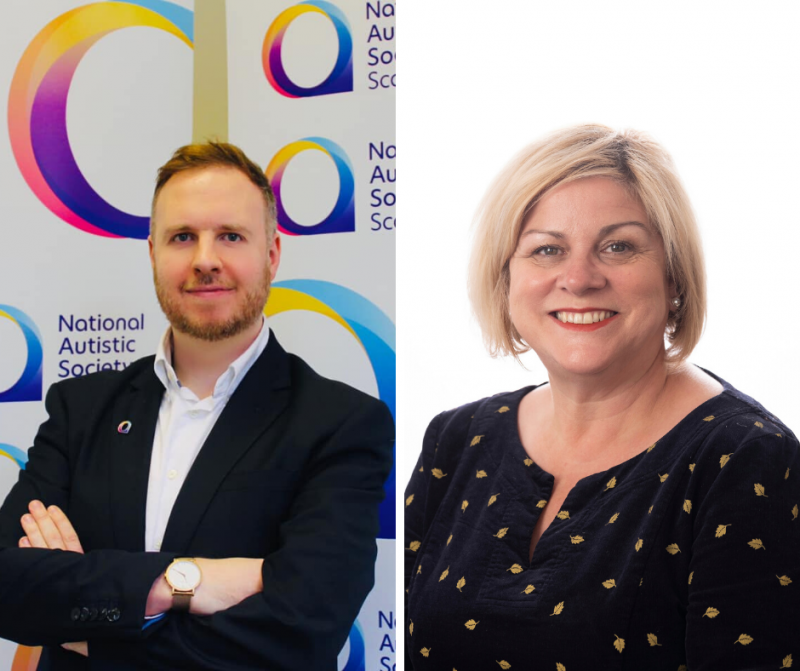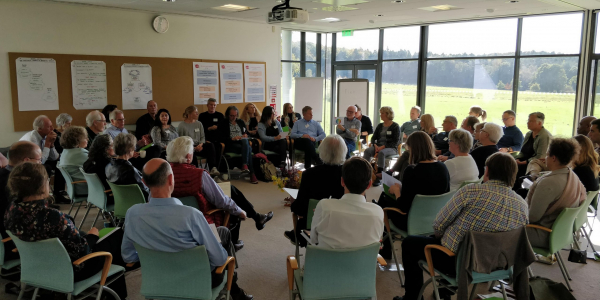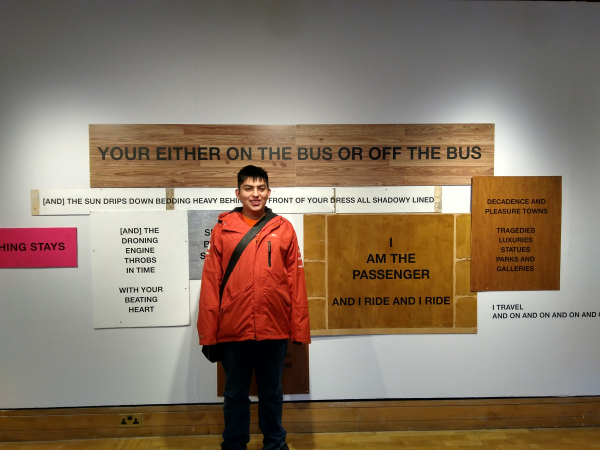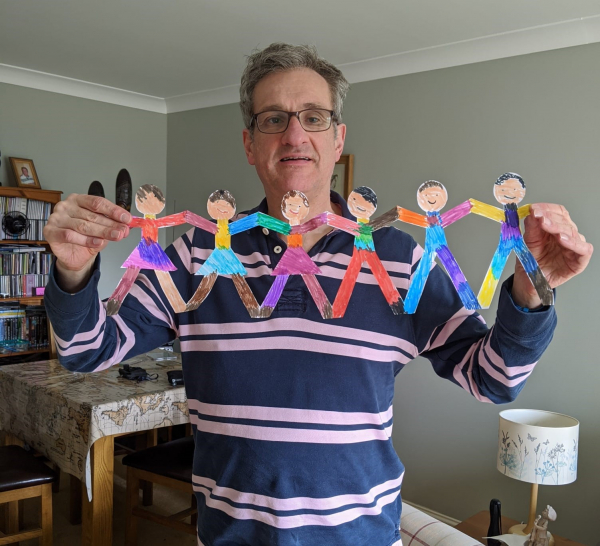Time to Act?
Nick Ward, National Director, National Autistic Society Scotland and Charlene Tait, Deputy Chief Executive, Scottish Autism
Prior to the Covid-19 health crisis, a small group of interested individuals together with Scottish Autism, National Autistic Society Scotland and Scottish Women’s Autism Network (SWAN) had come together to consider “What next?” when the national autism strategy comes to an end in 2021. We wanted to put forward a positive vision of what support for the autistic community could look like in Scotland and convened an advisory group of autistic individuals and family members to help inform our thinking.
We concluded that we should collectively campaign for legislation that would see an Autism Commissioner for Scotland established. This would be a world first. Inspired by the Commissioner for Children and Young people, a rationale and remit were drafted, debated and refined.
We identified five key functions which we believed the Commissioner should have:
• Promoting the rights of autistic people
• Consulting and involving autistic people and their families in the work of the commission
• Conducting formal investigations into social disadvantages or abuses of the rights of autistic people
• Investigating individual cases of abuses of rights
• Promoting good practice for the support and social inclusion of autistic people
Our strategy was to influence all political parties, ahead of the 2021 Holyrood elections, to commit to establishing a Commissioner in their respective manifestos.
Then, along came Covid-19. This global crisis has led to social and political change on a scale and pace that is unprecedented. Rightly, the focus has been on saving lives and minimising the impact of the pandemic on our National Health Service. It has also redefined what is considered “essential” in our society and has shone a light on the pressures on our health and social care system that were, in part, factors that led to a strategy specific to autistic people and their families being launched in 2011.
Several weeks into the crisis, there are emerging discussions as to what the “new normal” will look like. Here, we set out reflections on what we can learn from the Covid-19 response and consider how our health, social care and legislative landscape could and should change for autistic people, their families and involved professionals after the crisis.
It is likely that it will take some time for the full societal impact of the Covid-19 crisis to be understood. However, the lockdown measures resulted in overnight change to how our lives are lived and how services are delivered. For the autistic people we support in our services and across Scotland, the effects of significant change, uncertainty and the resulting anxiety were immediately felt. The crisis magnified a range of issues already recognised as being challenging for autistic people and their families when accessing education, health (particularly mental health) services and social care systems. These include but are not limited to, concerns about adapted and augmentative communication, and autism knowledge, understanding and acceptance. The long term requires proactive, community based supports rather than crisis-driven, reactive responses to autistic needs that have typically been prioritised during times of austerity.
In addition to being service providers, Scottish Autism and National Autistic Society Scotland have a role to play in influencing government. Central to this is ensuring that the priorities of autistic people and their families are understood and articulated in a way that resonates across a diverse community.
Prior to the Covid-19 crisis, one of the key forums for this was the Cross Party Group (CPG) on autism which gave a space for debate and discussion as to the impact and legacy of the Scottish Strategy for Autism. In particular it gave an opportunity for autistic people, their families and practitioners to express their views as to the real life impact of the many initiatives that have sprung from the strategy. In addition to meetings in parliament, the CPG travelled to Aberdeenshire and Dumfries and Galloway.
In order to enable as many voices to be heard as possible, National Autistic Society Scotland ran an online survey which had over 900 respondents. Unfortunately, the health crisis interrupted the planned dissemination of the Cross Party review of the strategy. It is hoped this will be published later in the year. However, the new context of Covid-19 and the Scottish Government’s response to supporting the autistic community during this crisis, point to the potential for new ways of working to emerge. Some notable examples include funding initiatives aimed at reducing isolation, and providing support, guidance and practical resources to autistic people and their families. Weekly meetings with stakeholders across the sector have been important in ensuring there is a direct process for highlighting and addressing issues as they emerge. We have been able to expedite action to address issues, such as providing guidance to Police Scotland in their approach to autistic people.
In many respects we have seen a more proactive approach from the Scottish Government in terms of funding being made available for a wide range of initiatives. We know, however, all the challenges that existed before the crisis such as diagnosis, support and access to services are still being felt at local level. These have been exacerbated by social distancing and lockdown. It is therefore imperative that the post-crisis landscape looks different for autistic people and their families.
The issues that have emerged during the outbreak and the need to prioritise and mobilise resources make the case for an Autism Commissioner even stronger. If such a role had existed already, we would have had in the heart of government a national point of contact, a central voice for the dissemination of good practice, and a way for concerns and challenges to be raised. Without this, National Autistic Society Scotland and Scottish Autism have to advocate from outside government for changes to decisions already made. This is always a more significant challenge.
So many of the issues that have affected the autistic community have come directly from a lack of understanding of autism. We know that we have made significant progress in raising awareness. People know that autism exists, but people still don’t really understand it and the impact it can have on individuals and families. The Scottish Government is making progress with this, as are our two charities. An Autism Commissioner would really be able to spearhead this work in partnership with autistic people and their families.
We have also, regrettably, heard of a number of cases of care packages being withdrawn or significantly diminished during the crisis. A Commissioner would be able to work directly with Local Authorities on the issues facing them and work with them to ensure that autistic people and their families are getting adequate support. Perhaps most crucially, they would be able to take action where this wasn’t happening.
There are significant challenges ahead for our community. The transition out of ‘lockdown’ will be just as challenging for many as the transition into it. Both Scottish Autism and National Autistic Society Scotland will be working to ensure that the needs of autistic people and their families are taken into account but we know in the ‘new normal’ we will be entering a time of even greater resource limitations. The rights of autistic people and their families are likely to come under greater strain. We believe that an Autism Commissioner would provide a bulkwark against any such erosion and a platform to advocate for greater rights and resources, not fewer. It is our intention to launch a joint campaign to advocate for an Autism Commissioner and we hope you will support us.





